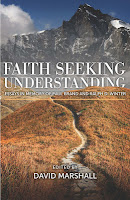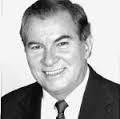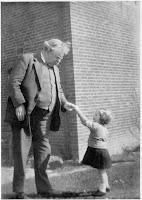 Chapter Five of Faith Seeking Understanding is by Dr. Miriam Adeney, a well-known anthropologist and missiologist who teaches at Seattle Pacific University. (I have taught in one of her classes.) Miriam is the author of many book about world Christianity, including
Chapter Five of Faith Seeking Understanding is by Dr. Miriam Adeney, a well-known anthropologist and missiologist who teaches at Seattle Pacific University. (I have taught in one of her classes.) Miriam is the author of many book about world Christianity, including Daughters of Islam
and Kingdom Without Borders: The Untold Story of Global Christianity
, which I am presently reading. She also teaches writing, and is herself -- as you will devine, shortly -- a wonderful writer. This excerpt is from the first chapter in Part II of Faith Seeking Understanding
, "Christ and Culture," which features four of the most fascinating writers I know on this intriguing topic. I was delighted when Miriam agreed to share her thoughts on Christianity and world religions, and even more delighted when I first read her piece -- personal in tone, simple in style, informed by more than just book-learning, orthodox, yet warm and generous in its approach to non-Christian faiths.
Buddhism: Pain
Life hurts. I have suffered my share. Beyond personal losses, I am
troubled by global hunger, HIV/AIDS, deaths in childbirth, and the abuse and
denial of opportunities suffered by millions. On my mind now are Iranian
Christians in prison. One pastor’s wife has just agonized through her fourth
miscarriage while penned up in a cell. Sometimes the pain of the world seems
too much to bear.
Buddhism offers a way forward. If I can see that suffering is
pervasive, if I can recognize that it is exacerbated by my own desires, and if
I can learn to quench my desire, then peace will come. In a nutshell, this sums up the first three
“Noble Truths.” My Thai friend Chaiyun
Ukosakul, who became a Christian as an adult, summarizes what he was taught:
“When I am angry, a tiger grows in my heart. But when I am enlightened, the
tiger dies.”
Buddhism invites me to let things go. I must not cling to things, or
relationships, or truths. I must hold everything in an open hand. It is all
passing away anyway. When I was in
Indonesia a few years ago, I climbed up a huge stone structure called Borobodor. Built more than a thousand years ago, this
monument is as large as a city block. On the lower levels, the stone carvings
were intricate, elaborate, lyrical, mellifluous retellings of episodes from the
life of the Buddha. As I rose higher, I saw that the carving became sparer,
until at the top the decoration was minimal. The closed domed pinnacle is said
to contain emptiness. And that is the destination I seek, according to
Buddhism. That is my goal as I shuffle off unnecessary desires. When I no longer drag baggage around, how
much lighter I will feel.
Kukrit Pramoj, former Prime Minister of Thailand and also a famous
novelist, once wrote a short Buddhist reflection on the gospel. The
main character in Pramoj’s story was a blind man named Bartimaus. Every day
Bartimaus made his way to the outdoor market, tapping along with his walking
stick. There he sat down. Vendors greeted him, and dropped a little food in his
bowl. Birds sang. Children laughed. A woman named Ruth befriended him, and over
time they fell in love.
Then Bartimaus heard that Jesus was coming through town, and that Jesus
could heal the blind. “Have mercy on me, and heal my eyes!” Bartimaus called
out.
Jesus did.
Suddenly Bartimaus tranquil routine was shattered. He saw the sewage and
the flies, the vendors’ faces lined with weariness and resentment, the children
dressed in rags, their skin pocked with sores. Ruth had been through a terrible
fire, he knew. Now he saw the gross burn that oozed where her face should have
been, and could not stand to look at her.
Later he saw Jesus crucified. Then he fell to his knees and cried, “Oh
God, give me back my blindness!”
This is a Buddhist response to the gospel, according to the Kukrit
Pramoj. At bottom, life is ugly. It is like a muddy pond. We can’t do much
about the mud. But we can aim to shoot up from the bottom like water
lilies and lie clean on the top.
That appeals to me. If there were no God, or if God had not reached out
to us, I might be a Buddhist. The faith offers a way to live with some degree
of peace in a painful world.
But the amazing news is that there is a God, and he has cared so
strongly for us that he chose to walk with dusty feet right to the painful
bloody cross, where he died and later rose in power for us.
This is not tranquility. This is passion. Desire. Love. And it is what
makes my own love possible. I cannot manufacture love on my own. But I can
receive it, and pass it on.
Deep in my heart I sense that I am not just a candle flame, or a drop
of water, or a temporary psychophysical event, which are common Buddhist
metaphors for human beings. Nor do those images describe the people around me.
We have lasting value. Jesus told a
story to make that point. In this parable, a shepherd rounded up ninety-nine
sheep. Just one sheep was missing. Yet the shepherd went out into the dark and
the cold to search for the one who was lost. That one sheep mattered. Jesus
made it clear that every one of us counts. Each person is important.
I think also of a Japanese haiku poet named Issa. Although he
had several children, they died, one after another. When the neighbors came to
comfort him, they offered a bit of Buddhist philosophy: “After all,” they said
to Issa, “this is a world of dew.”
What did they mean? Dew appears
on the grass in the morning, then
disappears. Our children arrive, and later they may disappear. None of this
should upset us. That’s life.
But when Issa was alone, he wrote a poem:
The world of dew
Is a world of dew
And yet! And
yet! . . .
**********************************************************************

Faith Seeking Understanding
makes a great Christmas gift, for students, missionaries, pastors, or non-Christian friends. The four sections of the book -- "Tutors," "Christ in Culture," "Christ in History," and "Christ in Science and Philosophy" -- join some of the most thoughtful Christians in the world today, to share their experiences of seeking truth in and through sincere Christian faith. I like to explain the theme of the book by paraphrasing Martin Luther: "Love God, and think boldly!"
Unfortunately there are almost only two ways to get this book by Christmas. You can order the book directly from William Carey Library. Or you can drop a check in the mail for $16 (including postage, add $10 for any of my other books as well!) to Kuai Mu Press / PO Box 403 / Fall City, WA 98024, and I will do my best to get it to you with time to spare -- or wrap it and send it directly to a friend (in the US, that is)! (I should add a third way -- Dr. Adeney's husband, Michael Adeney, is also selling the book through his
Harvest - Logos bookstore, which is one of the best sources I know for missions-related books. The book should become more widely available in early 2013.)
1.Kukrit Pramoj, “The Hell Which Heaven Forgot,” Practical
Anthropology, May-June, 1966.

















